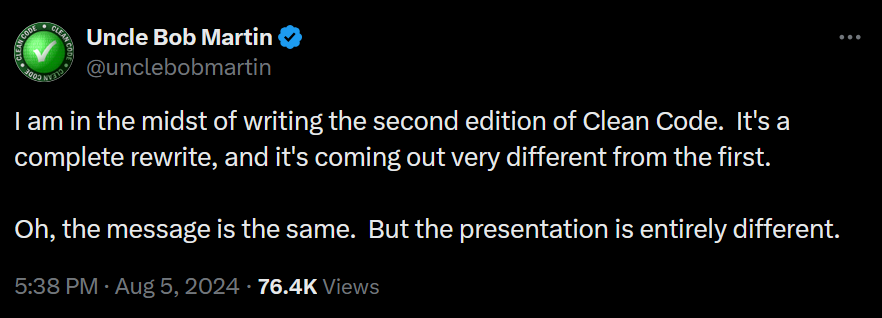this post was submitted on 10 Aug 2024
591 points (97.3% liked)
Programmer Humor
23424 readers
1655 users here now
Welcome to Programmer Humor!
This is a place where you can post jokes, memes, humor, etc. related to programming!
For sharing awful code theres also Programming Horror.
Rules
- Keep content in english
- No advertisements
- Posts must be related to programming or programmer topics
founded 2 years ago
MODERATORS
you are viewing a single comment's thread
view the rest of the comments
view the rest of the comments

I should have stressed the "opinion" part of "IMO". What I mean is that, when I read this, it struck me immediately as being exactly correct: https://joeduffyblog.com/2016/02/07/the-error-model/
That's a cracking article.
My own use of jvm errors tends to follow the same kinds of patterns: I think the major fault with that model is having RuntimeException as a subclass of Exception, because it's really intended for abandonment-style errors. (The problem is that lots of people use it instead as an exception system in order to cut down on boilerplate.)
I find it eye-opening that the author prefers callsite annotation with
try(although I'm not going to argue with their experience at the time). I can see this being either "no big deal" or even "a good thing" to Rust users in particular - mutability and borrowing annotations at both callsite and definition aren't required to make the language work afaict (your ide will instantly carp if you miss 'em out) but the increased programmer visibility is typically seen as a good thing. (Perhaps this is down to people largely reviewing PRs in a browser, I dunno.) Certainly there's tons of good food for thought there.I'm a Rust fan, and I do think they eventually struck a pretty good "visibility vs noise" balance with
?(which was highly controversial at the time).I'm coming around to it.